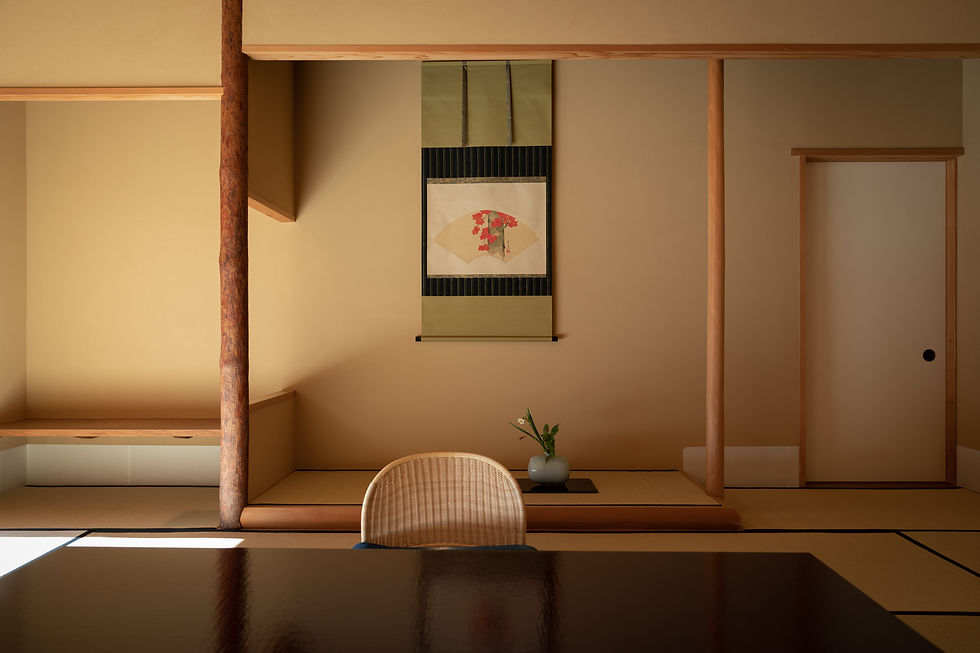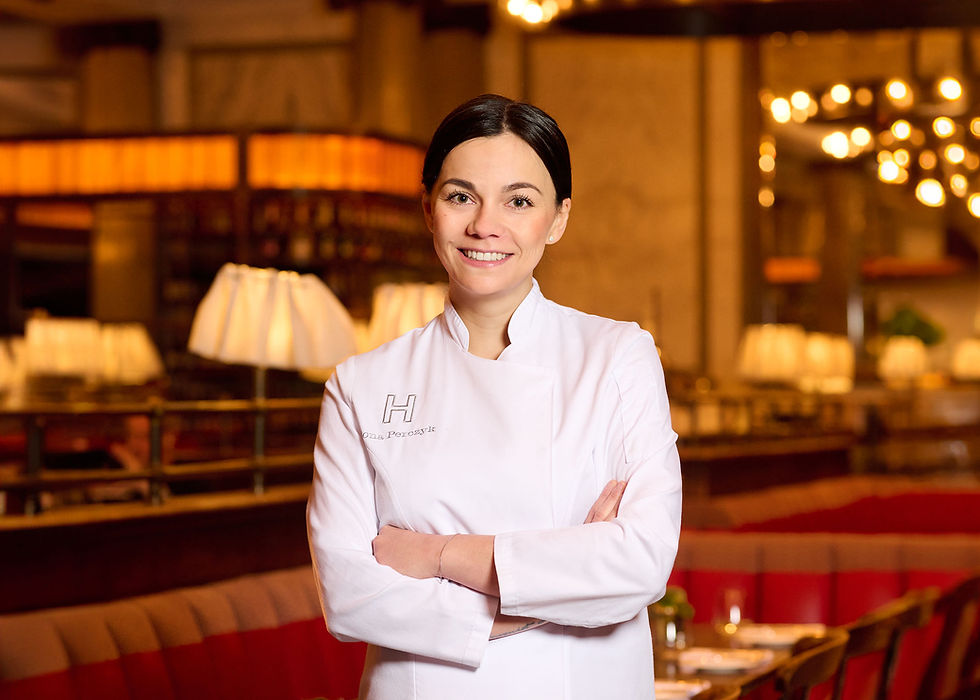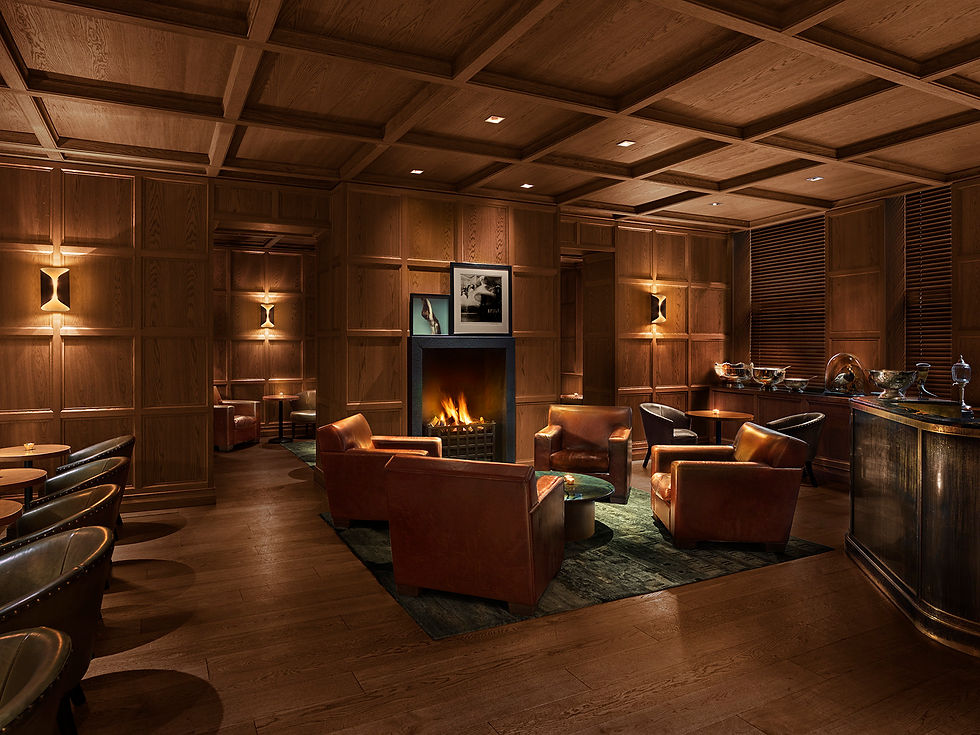ASABA RYOKAN
- 5' ELEVEN''

- Sep 19, 2025
- 5 min read

The Enduring Allure and Legacy of Asaba Ryokan
Nowadays, it is almost impossible to travel and experience a place in its original form, untouched by the global wave of tourism. Secluded from Japan's capital, Asaba Ryokan offers just that. Located in Shuzenji, on the Izu Peninsula in Shizuoka Prefecture, this centuries-old ryokan is steeped in the history of a town famed for its Shuzenji (修禅寺) temple and bamboo forest. Situated about two hours from Tokyo, Shuzenji is accessible — yet far enough removed to offer a peaceful escape and a chance to explore Japan’s remarkable past, away from the crowds. Popular with Japanese locals, it is a destination where heritage can be experienced in a peaceful, more authentic way. It is not a place you simply stumble upon; reaching it requires intention. But for those who make the effort, the reward is immense.
Words by Leigh Maynard. Portrait by Edwin S Freyer.
“The temple in Shuzenji (修善寺), ( meaning the Temple for Training of ZEN), has been in existence for 1200 years,” explains Misa Asaba. “Our ancestors who founded it wanted to give temple visitors a place to rest after a long day of walking when there were no cars or other means of transport.” Misa and her husband are the current owners of Asaba Ryokan, dedicated to preserving its ethos and legacy while ensuring its stewardship for future generations.


Ryokans — traditional Japanese inns — are the ultimate expression of omotenashi, or Japanese hospitality. Since the eighth century, they have preserved customs, architectural forms, and a way of life that transports visitors to a bygone era. Today, they are rare and often tucked away off the beaten path, but for those who find them, they offer a gateway to Japan’s deep cultural roots.
Established in 1484 by Yakuro Yukitada Asaba, who introduced Soto Buddhism to the area, Asaba Ryokan is now run by the family’s ninth generation. “The inn started when we built a place and served meals to worshippers,” Misa shares. “It began with a Zen appreciation of caring for people. Asaba has been run as a family business for more than 540 years by people with the surname Asaba. In its history, there have been wars, epidemics, natural disasters and times when the world situation was unstable, and the Japanese economy fluctuated greatly. But no matter what happened, the ancestors of the Asaba [family] have continued to protect this [place].”

Many original features remain intact thanks to the careful stewardship of the Asaba family and a network of devoted artisans. “It is supported by so many craftsmen that not a day goes by without one in the house,” Misa explains. “Japanese traditional culture — from wood procurement to fittings, ceiling boards, shoji sliding doors, tokonoma (alcove) side floors, [and even gardening] the list is endless. but it cannot be created without corrections down to a few millimetres and the sensitivity and passion the craftsmen have for their customers. Craftsmen have been involved with Asaba for generations and are always on hand to make even the smallest of repairs. I believe that this is a treasure and a source of pride for Japan.”
The Ryokan offers eleven rooms and one villa. Our room felt like an entire house, featuring a minimalist aesthetic with tatami-matted floors and sliding doors — a showcase of exquisite craftsmanship. From our second-floor vantage point, we overlooked a tranquil pond where koi swam against the current of a small waterfall, framed by cherry blossoms hinting at the arrival of spring.
“Asaba is the gateway to Shuzenji Temple,” Misa continues. “Wind passes through, water flows in the pond, and the place has been carefully protected by its ancestors, surrounded by nature and its splendour. In order to maximise the experience, the window frames are made as thin as possible. It is also very important that light enters, and the reflection on the pond is calculated as well. This is what keeps the place unique.”

Our suite, the Moegi room, was a study in curated minimalism and quiet luxury. It included a spacious bathroom, two living rooms, a cosy bedroom with two beds, and expansive windows and corridors that lent a sense of airiness and calm. One of our favourite features was the private onsen in each room. “Hot springs are a blessing of nature,” Misa says. “To experience [them] in your own time, in your own space, is a very [meaningful way] to feel gratitude for the fact that people coexist with nature.”
Half-board guests can enjoy Kaiseki dinners and Japanese-Western breakfast, served in-room by a personal butler. Ingredients are locally sourced, and menus tailored to each guest’s needs. Ours was vegetarian-friendly — another sign of the team’s commitment to personalised hospitality. Asaba Ryokan truly considers everything. “The four seasons, the purpose of the guest’s trip, their physical condition, religion, number of people, and [even] the weather that day, all of which cannot be experienced in a Western hotel.” Emphasises Misa, “We are also conscious of local production for local consumption. Our mission is to cook food grown in this natural world and to co-exist in gratitude for this blessing of Shizuoka.”
This philosophy extends into the Hitotoki Spa, which draws from the area’s abundant natural resources. “Abundant water at the foot of Mount Fuji and geothermal heat created by the volcanoes produces ore. The overflowing spring water and volcanic ash that has accumulated on the seafloor is transformed into ‘Izu stone,’ a valuable [material used] in baths and facials using basalt in Shizuoka. Ancient Japanese pebble round silk, with a focus on plant-based origins, is also a recommended treatment” Misa explains.


Cultural enrichment is part of the stay. Guests can check the lobby schedule for monthly performances on Asaba’s Noh stage, featuring Japan’s most revered artists. “They are all Living National Treasures,” says Misa. “We do not select such people [lightly] — only those who can create a performance [worthy of] the stage.”
The attentiveness at Asaba Ryokan is impeccable from the moment of arrival to departure. “It is about caring for and appreciating others,” Misa says. “Today's world has become self-first, and the compassion that connects the hearts of important people with each other seems to be diminishing. Asaba has a long history of preserving this spirit from generation to generation, and weaving it through time, which is the meaning of Asaba's continued existence. I believe that this is an irreplaceable asset that cannot be found anywhere else, and that Asaba will never waver [in this mission].”
Asaba Ryokan does not try to mimic the excesses of modern luxury hotels. Instead, it honours its roots — evolving with the times while staying true to its core. “What exactly is a luxury stay? Misa reflects. “Is luxury something that can be done anywhere in the world? We don't think that's what Asaba's guests want. If those who understand Asaba's history — and its deep, rather than broad — evolution can visit and feel [that], then [we have fulfilled] our mission: to preserve and evolve Asaba to the best possible form. We believe it is our responsibility to pass the baton to the next generation in a satisfactory form. Protecting and inheriting means always moving forward, and maintaining the status quo means decline. When guests from all over the world visit Asaba, they are sure to feel the dignified atmosphere created by its history. That is the greatest experience that Asaba can give them, and we hope that they will feel something when they step into this place.”
For more information, visit Asaba Ryokan website.





Comments